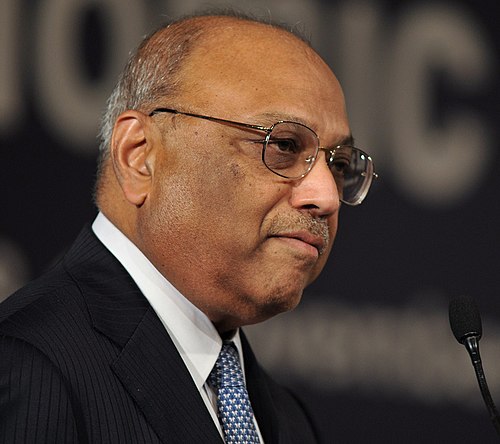1.
The future lies with those companies who see the poor as their customers.
C. K. Prahalad
2.
If we stop thinking of the poor as victims or as a burden and start recognizing them as resilient and creative entrepreneurs and value conscious consumers, a whole new world of opportunity will open up.
C. K. Prahalad
3.
If your aspirations are not greater than your resources, you’re not an entrepreneur.
C. K. Prahalad
4.
Strategy is about stretching limited resources to fit ambitious aspirations.
C. K. Prahalad
5.
How we ask the question is extremely important to how we find the answer.
C. K. Prahalad
6.
Imagining the future may be more important than analysing the past.
C. K. Prahalad
7.
Assume responsibility for outcomes as well as for the processes and people you work with. How you achieve results will shape the kind of person you become.
C. K. Prahalad
8.
If we took the mission statements of 100 large industrial companies, mixed them up while everyone was asleep, and reassigned them at random, would anyone wake up tomorrow and cry, 'My gosh, where has our mission statement gone?'
C. K. Prahalad
9.
Invest time in languages and intercultural awareness. Focus on becoming part of global citizenry. In exchange for the opportunity to participate everywhere/anywhere in the world you have the obligation to do something productive, which will improve the world. Develop a personal mission, a desire to leave personal legacy.
C. K. Prahalad
10.
The resource allocation task of top management has received too much attention when compared to the task of resource leverage.
C. K. Prahalad
11.
There is an important distinction between barriers to entry and barriers to imitation.
C. K. Prahalad
12.
Executives are constrained not by resources but by their imagination.
C. K. Prahalad
13.
The real source of market promise is not the wealthy few in the developing world, or even the3 emerging middle-income consumers. It is the billions of aspiring poor who are joining the market economy for the first time.
C. K. Prahalad
14.
With wolves, solidarity is first but when they hunt, they change roles. The implicit hierarchy depends on who does what. In an organization one unique person makes a difference, but you need teamwork to make it happen.
C. K. Prahalad
15.
Dividing meager resources across a host of medium term operational goals creates mediocrity on a broad scale.
C. K. Prahalad

